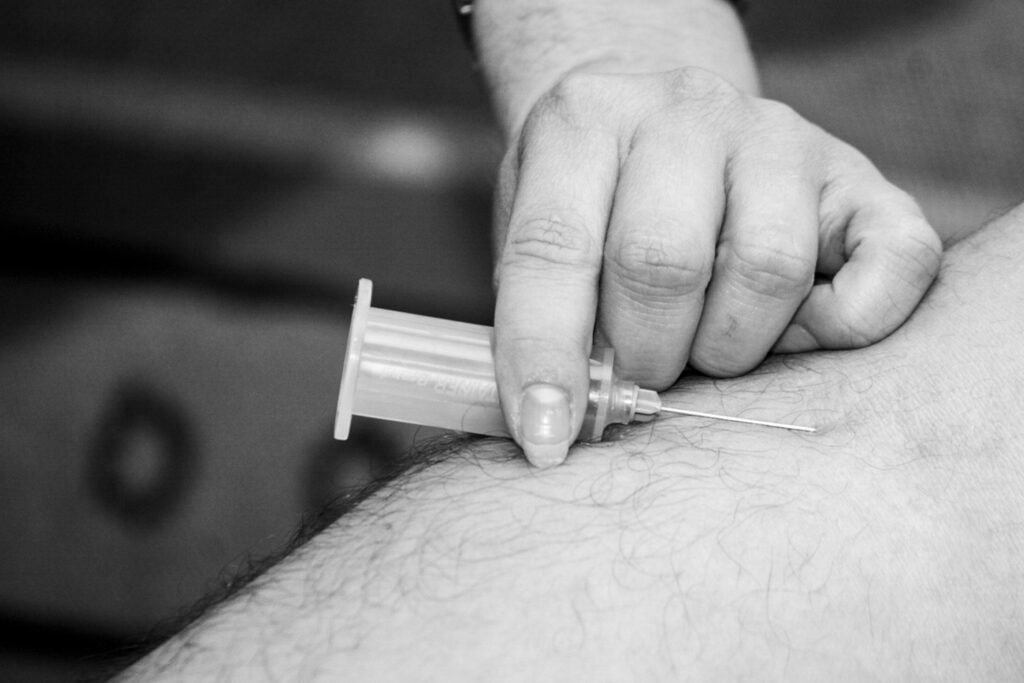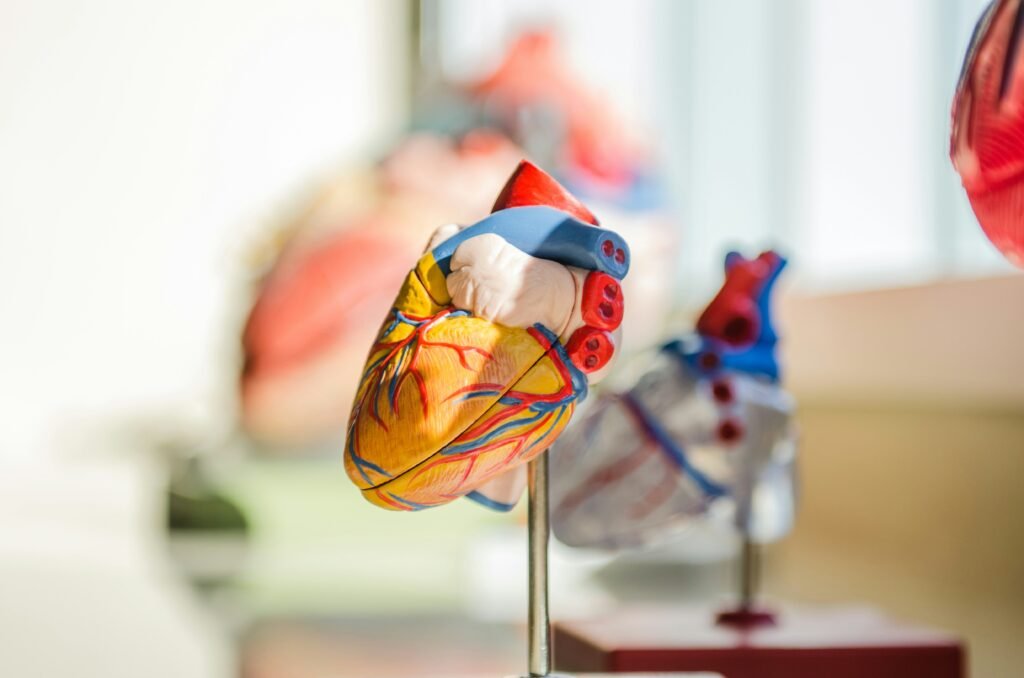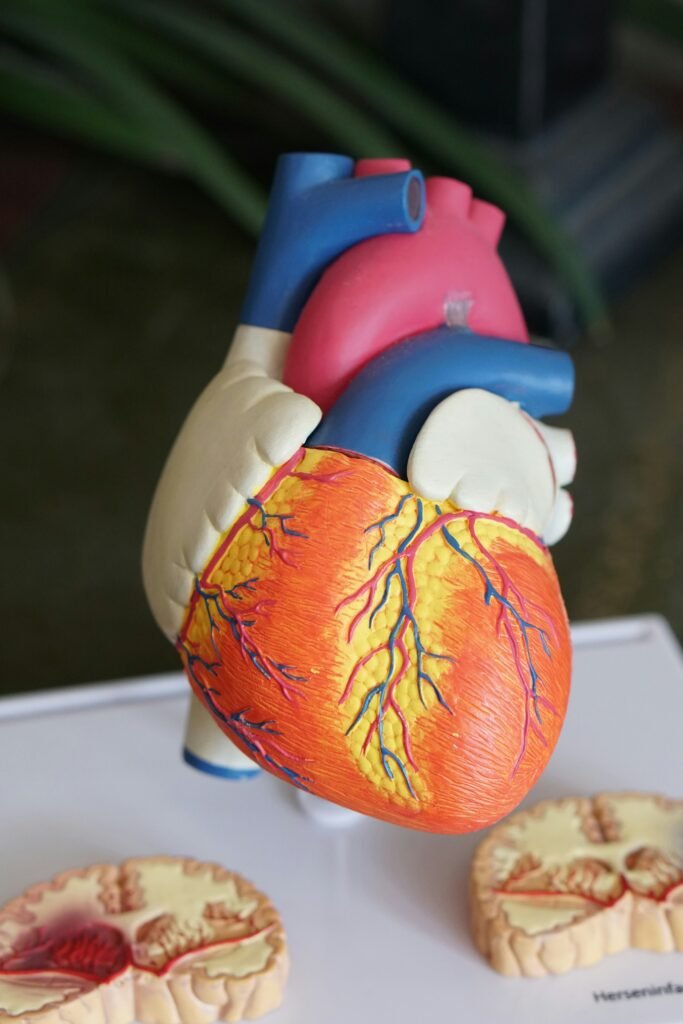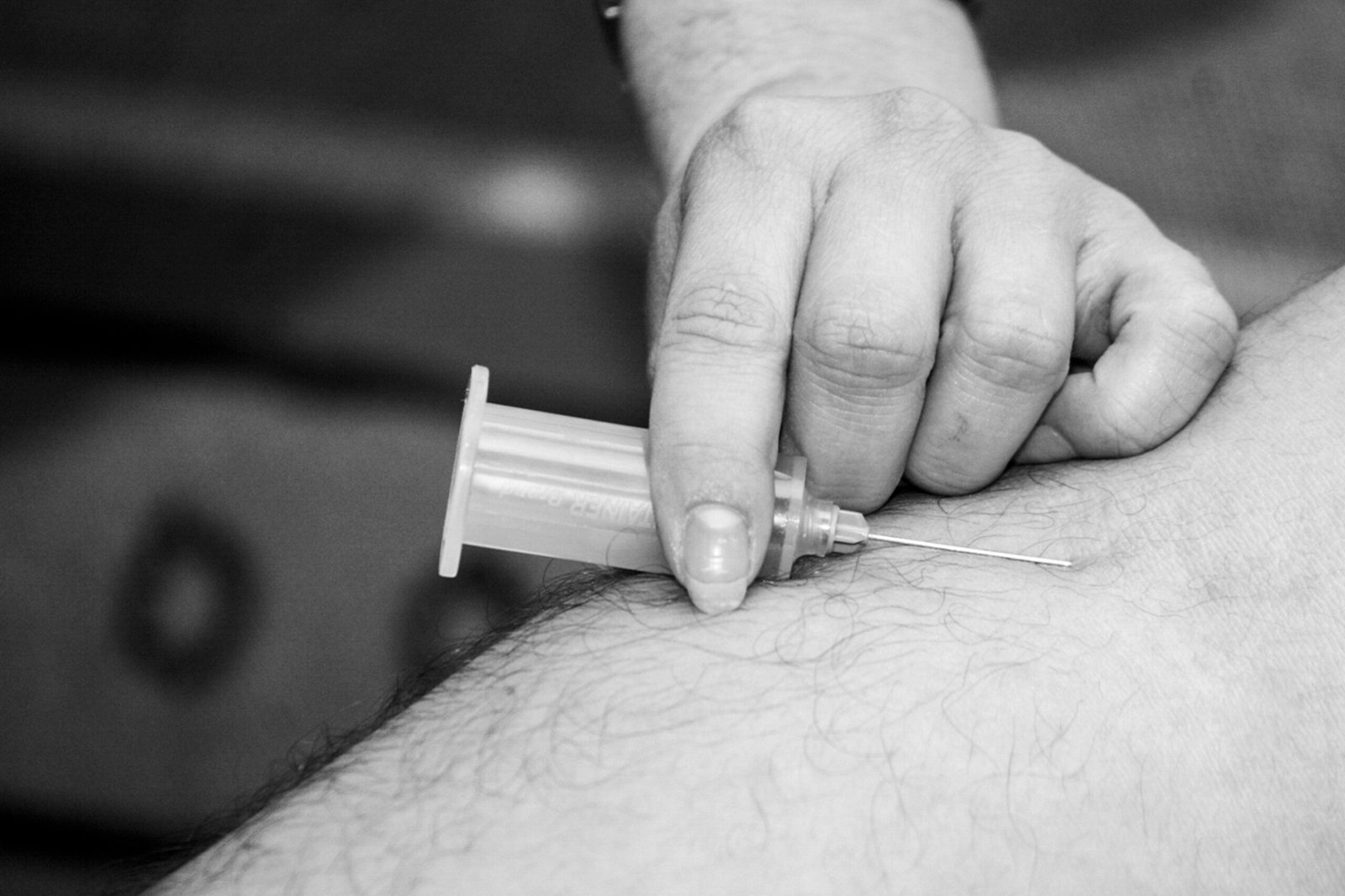In the article “The Environmental Impact of Your Inhalers and EpiPens,” it is highlighted that personal medical devices such as inhalers and EpiPens are not very healthy for the environment. For individuals who are conscious of their eco-footprint, recycling options for these devices are limited. This poses a problem, as the health care industry used over 24 billion pounds of plastic in 2023, and this number is expected to increase to 38 billion pounds annually by 2028. With the world already facing a plastic crisis, it is crucial to explore ways to reduce the environmental impact of these essential medical tools.

The Environmental Impact of Inhalers
Plastic Waste from Inhalers
When it comes to the environmental impact of inhalers, one of the major concerns is the plastic waste they generate. Traditional inhalers are made up of multiple plastic components that are difficult to separate and recycle. As a result, most inhalers end up in landfills, adding to the growing plastic waste problem. The healthcare industry alone used over 24 billion pounds of plastic in 2023, with that number projected to increase to 38 billion pounds annually by 2028.
Greenhouse Gas Emissions
In addition to plastic waste, inhalers also contribute to greenhouse gas emissions. The propellants used in inhalers, such as hydrofluoroalkane (HFA), have a high global warming potential. These propellants can remain in the atmosphere for a long time and contribute to the depletion of the ozone layer. Furthermore, the manufacturing process of inhalers, including the extraction and processing of raw materials, also emits greenhouse gases.
Depletion of Natural Resources
The production of inhalers also leads to the depletion of natural resources. The plastic components of inhalers are typically made from petroleum-based materials, which require the extraction and refining of fossil fuels. This extraction process can have destructive impacts on ecosystems, including habitat destruction and water pollution. Additionally, the extraction of raw materials for inhaler production contributes to deforestation, further exacerbating the loss of biodiversity.
The Environmental Impact of EpiPens
Plastic Waste from EpiPens
Similar to inhalers, EpiPens also contribute to plastic waste. EpiPens consist of several plastic components, including the outer casing and the auto-injector mechanism. Unfortunately, these plastic components are not easily recyclable, leading to a large amount of plastic waste ending up in landfills. As the use of EpiPens becomes more prevalent, the accumulation of plastic waste becomes a growing concern.
Greenhouse Gas Emissions
EpiPens also contribute to greenhouse gas emissions. The manufacturing process of EpiPens involves the extraction and processing of raw materials, which emits greenhouse gases. Additionally, the transportation of EpiPens from manufacturers to distribution centers and ultimately to consumers also contributes to emissions. The propellants used in auto-injectors can also have a high global warming potential, further contributing to greenhouse gas emissions.
Depletion of Natural Resources
The production of EpiPens involves the extraction of raw materials, which contributes to the depletion of natural resources. The plastic components of EpiPens are typically made from petroleum-based materials, requiring the extraction and refining of fossil fuels. This extraction process has negative impacts on ecosystems, such as habitat destruction and water pollution. Additionally, the use of raw materials for EpiPen production contributes to deforestation, exacerbating the loss of biodiversity.

Recycling Options for Inhalers and EpiPens
Current Recycling Efforts
Currently, recycling options for inhalers and EpiPens are limited. The complex nature of these devices, with their multiple plastic components, makes it difficult to efficiently separate and recycle the materials. However, there are some programs and initiatives in place that aim to address this issue. For example, some pharmaceutical companies have started take-back programs where consumers can return their used inhalers and EpiPens for proper disposal and recycling.
Challenges in Recycling
One of the main challenges in recycling inhalers and EpiPens is the lack of infrastructure and facilities capable of handling these devices. The separation of different plastic components can be a labor-intensive and costly process. Additionally, the presence of residues, such as medication or propellants, in the devices can complicate the recycling process. These challenges make it difficult to implement widespread recycling programs for inhalers and EpiPens.
Potential Solutions
Despite the challenges, there are potential solutions that can improve the recycling options for inhalers and EpiPens. One approach is the development of design guidelines for manufacturers to create inhalers and EpiPens with easily separable and recyclable components. By designing devices that are more conducive to recycling, the overall recycling rates can be improved. Additionally, the establishment of more recycling facilities specifically tailored to handle these medical devices can help increase recycling rates and reduce plastic waste.
Alternatives to Traditional Inhalers and EpiPens
Developments in Eco-Friendly Inhalers
There have been promising developments in the field of eco-friendly inhalers. One example is the adoption of dry powder inhalers (DPIs) as an alternative to traditional pressurized metered-dose inhalers (pMDIs). DPIs do not require propellants, thereby eliminating the emissions associated with traditional inhalers. Additionally, DPIs can be designed with recyclable components, further reducing their environmental impact. Continued research and development in eco-friendly inhalers can lead to more sustainable options for patients.
Biodegradable EpiPens
In the case of EpiPens, one potential alternative is the development of biodegradable auto-injectors. By using biodegradable materials for the casing and mechanism, the environmental impact of EpiPens can be significantly reduced. These biodegradable auto-injectors would break down naturally over time, minimizing the accumulation of plastic waste. Research and innovation in biodegradable EpiPens can provide a more sustainable option for patients in need of emergency treatment.

The Role of Pharmaceutical Companies
Responsibility in Sustainable Packaging
Pharmaceutical companies play a crucial role in addressing the environmental impact of inhalers and EpiPens. One aspect of their responsibility is in sustainable packaging. By using recyclable or biodegradable materials for the packaging of inhalers and EpiPens, pharmaceutical companies can reduce plastic waste and minimize their environmental footprint. Additionally, companies can explore packaging designs that limit the use of excessive materials, further reducing waste.
Investment in Eco-Friendly Technologies
Pharmaceutical companies can also contribute to sustainability efforts by investing in eco-friendly technologies. This includes research and development of more sustainable alternatives to traditional inhalers and EpiPens, such as dry powder inhalers and biodegradable auto-injectors. By investing in innovation and adopting more environmentally friendly technologies, pharmaceutical companies can help mitigate the environmental impact of their products and contribute to a more sustainable healthcare industry.
Government Regulations and Policies
Current Regulations on Medical Waste
Government regulations on the disposal of medical waste vary across regions. Some countries have specific guidelines in place for the proper disposal of inhalers and EpiPens. For example, in some areas, inhalers and EpiPens may be categorized as hazardous waste and require special handling and disposal procedures. However, there is a need for more comprehensive regulations that address the environmental impact of these medical devices and promote recycling and sustainable practices.
Proposed Policies to Reduce Plastic Use
In response to the growing plastic waste problem, there have been proposed policies to reduce plastic use and promote sustainability. Some countries are considering bans on select single-use products, including certain types of inhalers and EpiPens. Additionally, policies are being drafted to set goals for reducing plastics production and increasing recycling rates. These proposed policies aim to tackle the plastic waste issue at its source and encourage the adoption of more sustainable alternatives in the healthcare industry.
Consumer Education and Awareness
Educating Patients on Proper Disposal
Consumer education and awareness are crucial in addressing the environmental impact of inhalers and EpiPens. Patients need to be informed about the proper disposal methods for these devices to ensure they are not contributing to plastic waste. Pharmacy professionals and healthcare providers can play a role in educating patients on the importance of returning used inhalers and EpiPens to designated collection points for recycling and safe disposal.
Raising Awareness on Environmental Impact
Raising awareness about the environmental impact of inhalers and EpiPens is essential to encourage sustainable practices among patients and healthcare professionals. Through educational campaigns, online resources, and community outreach, the message about the harmful effects of plastic waste and greenhouse gas emissions can be spread. By increasing awareness, individuals can make more informed choices and advocate for sustainable alternatives in the healthcare industry.
Collaboration between Stakeholders
Partnerships between Pharmaceutical Companies and Environmental Organizations
Collaboration between pharmaceutical companies and environmental organizations can lead to impactful solutions for reducing the environmental impact of inhalers and EpiPens. By working together, these stakeholders can pool their resources and expertise to develop and implement sustainable practices. Partnerships can focus on research and development of eco-friendly technologies, as well as the establishment of recycling programs and infrastructure. Through collaboration, the collective effort can achieve significant positive change.
Engagement with Healthcare Professionals and Patients
Engaging healthcare professionals and patients in the conversation about sustainability is vital for lasting change. Healthcare professionals can play a role in advocating for eco-friendly alternatives and proper disposal practices. They can educate their patients about the environmental impact of medical devices and the importance of recycling. By involving healthcare professionals and patients in decision-making processes, their perspectives and experiences can contribute to the development of effective and sustainable solutions.
The Economic Implications
Cost of Eco-Friendly Alternatives
One consideration in implementing eco-friendly alternatives is the cost. The initial investment in research and development of sustainable inhalers and EpiPens may be higher compared to traditional devices. However, it is important to take into account the long-term benefits and cost savings associated with sustainable practices, such as reduced waste management costs and potential incentives for sustainable packaging. Balancing the economic implications with environmental considerations is crucial for the adoption of eco-friendly alternatives.
Potential Financial Incentives for Sustainable Practices
To encourage the adoption of sustainable practices, there is a need for potential financial incentives. Governments and regulatory bodies can provide incentives for pharmaceutical companies that invest in eco-friendly technologies and packaging. Additionally, healthcare systems can reward healthcare providers and facilities that prioritize sustainability and properly dispose of medical waste. These financial incentives can drive the adoption of sustainable practices and help create a more environmentally friendly healthcare industry.
Conclusion
The environmental impact of inhalers and EpiPens is a significant concern that needs to be addressed. The plastic waste, greenhouse gas emissions, and depletion of natural resources associated with these medical devices have consequences for our planet. However, there are potential solutions and actions that can be taken to mitigate these impacts.
Through collaboration between stakeholders, such as pharmaceutical companies, environmental organizations, healthcare professionals, and patients, innovative and sustainable alternatives can be developed and implemented. Government regulations and policies can create a framework for a more environmentally conscious healthcare industry. Consumer education and awareness can empower individuals to make sustainable choices. Ultimately, by working together, we can reduce the environmental footprint of inhalers and EpiPens and create a healthier planet for future generations.








